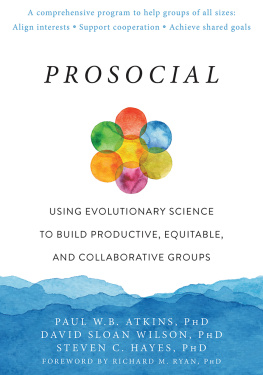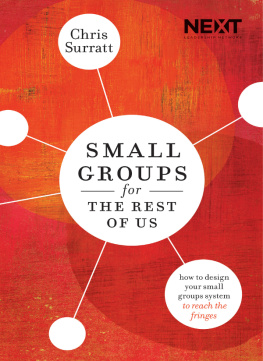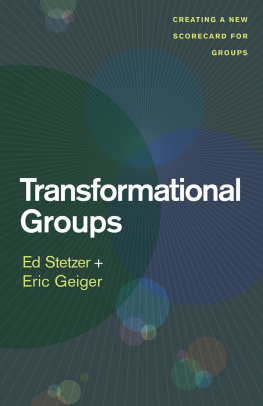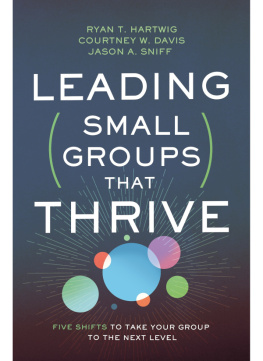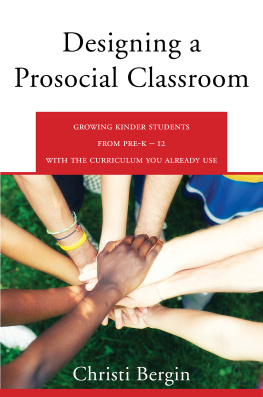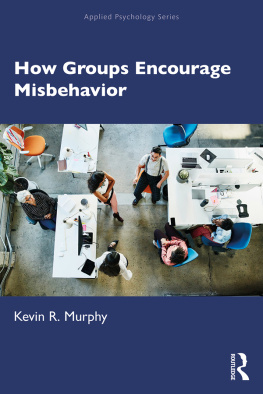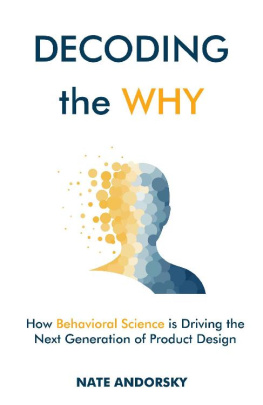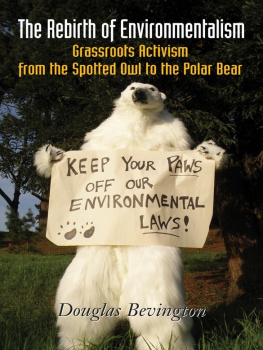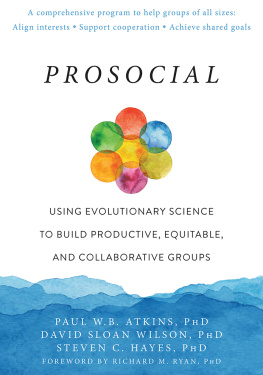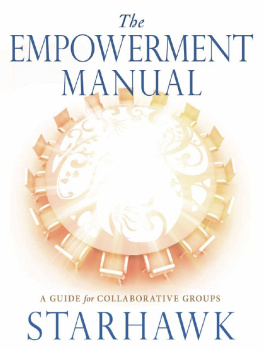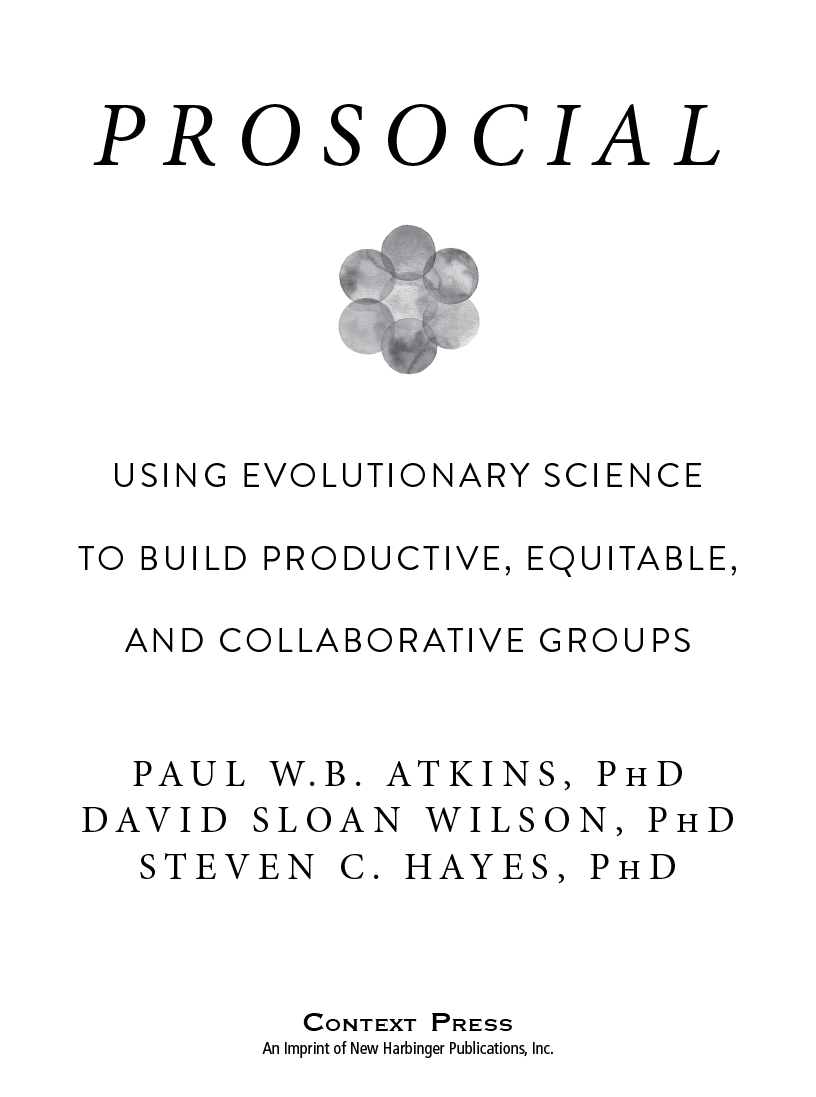This book expanded my imagination about what is possible in groups of any form. This expansion came from the careful articulation of multidimensional, multi-evolutionary science and its union with functional behavioral science. The book provides a highly useful and operational approach for building and transforming groups to be more prosocial. This book is chock-full of clear steps on how to engage the Prosocial process to increase prosociality in the world. The book is a welcome, practical, and well-documented guide for people interested in lifting up the capability and competence of a group to be more productive, equitable, and collaborative.
Jane Dutton, PhD , professor emerita of business administration and psychology, and coauthor of Awakening Compassion at Work
This groundbreaking book shows how evolutionary theory can be used to empower the success of small groups. It is a seamless integration of the processes of psychological flexibility, the science of organizational development and interpersonal trust, and Elinor Ostroms Nobel Prizewinning core design principles for group cooperation. What results is a method that is both principle-based and highly flexible, and that speaks directly and practically to the role of coaches and consultants. This book is essential reading for anyone who works with people in group settings, and who is committed to helping these groups to be their best.
Susan David , PhD , cofounder of the Institute of Coachinga McLean/Harvard Medical School Affiliate; psychologist at Harvard Medical School; and author of Emotional Agility
What do you get when you combine contemporary evolutionary theory, insights from a winner of the Nobel Prize in Economics, and years of psychological research on behavior change? As it turns out, you get a practical and intuitively appealing set of steps for increasing care and cooperation amidst the twenty-first centurys soul-sapping and ecologically damaging selfishness. The approach developed by Atkins, Wilson, and Hayes shows real promise, and I hope many people adopt it.
Tim Kasser, PhD , professor in the department of psychology at Knox College in Galesburg, IL; and coauthor of Hypercapitalism
A powerful, simple, but new perspective; part what to do, mostly how to do it, on the big question. Its always been make-or-break for our species. Somehow, its looming ever larger: How can I be for myself, but also for others and our world?
Nicholas Gruen, PhD , visiting professor at Kings College London Policy Institute, CEO of Lateral Economics, and author of the forthcoming The Public Goods of the 21st Century
Prosocial helps feuding individuals figure out their common purpose, and gives warring factions the means to cooperate. Anyone who has ever tried to solve a burning conflict within or between groups should read this book.
Susan Pinker , psychologist, behavioral science columnist for The Wall Street Journal , and author of The Sexual Paradox and The Village Effect
One of the authors, David Sloan Wilson, has said that everyone needs to become wise managers of their own cultural evolutionary process. This book is a great way to learn how to do this very thing. If you are looking for ways to achieve shared goals, work effectively in groups, or in any way make the world a better place, you are going to want to read this book. It is a deeply practical and insightful guide for individuals and the organizations they work for.
Joe Brewer , executive director of the Center for Applied Cultural Evolution
Evolutionary science has a lot to say about how we can create more effective, cooperative groups. So does the research of Nobel Laureate Elinor Ostrom, the great scholar of the commons. Blending these two rich streams, Atkins, Wilson, and Hayes provide powerful, practical guidance for anyone wishing to nourish prosocial behaviorsin education, business, civic action, athletics, and beyond. A concise, readable synthesis that practitioners and scholars alike will appreciate.
David Bollier , coauthor of Free, Fair, and Alive
Publishers Note
This publication is designed to provide accurate and authoritative information in regard to the subject matter covered. It is sold with the understanding that the publisher is not engaged in rendering psychological, financial, legal, or other professional services. If expert assistance or counseling is needed, the services of a competent professional should be sought.
In this book, some clients have been anonymized and descriptions of some groups are combinations of groups that have been modified for pedagogical reasons.
In consideration of evolving American English usage standards, and reflecting a commitment to equity for all genders, they/them is used in this book to denote singular persons.
Distributed in Canada by Raincoast Books
Copyright 2019 by Paul W. B. Atkins, David Sloan Wilson, and Steven C. Hayes
Context Press
An imprint of New Harbinger Publications, Inc.
5674 Shattuck Avenue
Oakland, CA 94609
www.newharbinger.com
Figures 1.1 and 1.2 reproduced courtesy of William Muir.
Cover design by Amy Shoup; Acquired by Catharine Meyers;
Edited by James Lainsbury; Indexed by James Minkin
All Rights Reserved
Library of Congress Cataloging-in-Publication Data on file
Paul Atkins: To Betty, my mother, who taught me about being prosocial. I wish I could have shown you this book.
And to Khia, Dana, and Evie, whose love and support throughout the writing of this book sustained me.
David Sloan Wilson: To my nuclear family, Anne, Katie, and Toby, a prosocial unit if ever there was one.
Steven C. Hayes: To Steven J. Pistorello-Hayes, my sweet little boy who is not so little anymore. I hope, in some small way, that what we have done with the Prosocial process will touch the lives of children, who so deserve a more prosocial and nurturing world in which to live.
Contents
Foreword
As we look to the worlds future, we see formidable problems to be solved. We are rapidly polluting our planet, overheating our atmosphere, and siphoning more than half the wealth and resources of our entire planet into the hands of a few dozen individuals. We engage in competitive relations within and between people and organizations that are not only wasteful, but a source of suffering to many. Dire poverty sits nakedly adjacent to excessive consumption and conspicuous greed, a dynamic that too often erupts into cycles of violence and oppression.
Many people claim these more destructive trends in modernity are manifestations of human nature. But to what human nature are they referring? Clearly, there are many sides to humans, and the natures they express. People are also helpful, friendly, and cooperative. Everywhere we can find people working together in small groups and communities for the common good. Daily, in virtually every society across the globe, we can witness love, collective sacrifice, and caring for others.
It is with these multiple human natures in mind that I find this book by Atkins, Wilson, and Hayes to be both so timely and so important. Harnessing the Nobel prizewinning work of Elinor Ostrom, these authors build on both evolutionary theory and cutting-edge behavioral science to specify the characteristics of groups that can not only do well by their members but also forge a positive direction in relation to the rest of the ecologies in which they are embedded. Underlying the deep theory informing Prosocial practices is an understanding of our complexly evolved human natures. Yes, we can be competitive and destructive. But we can also be cooperative, constructive and giving. Which human nature we display is not just a matter of genetics, but also of the social-environmental designs in which we find ourselves. Understanding the core elements of such environments is a key to catalyzing the best of our evolved human propensities and capabilitieswhich, as it turns out, are manifold!

